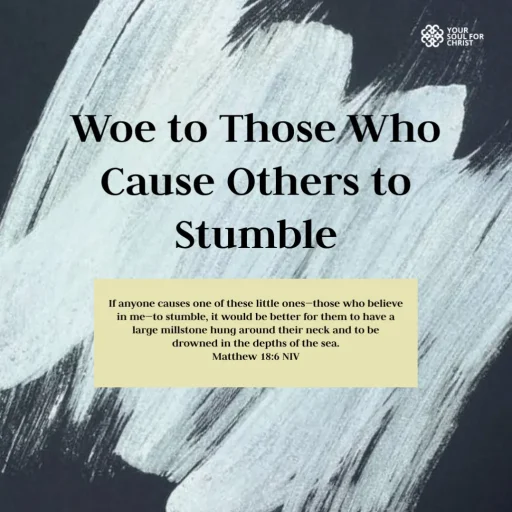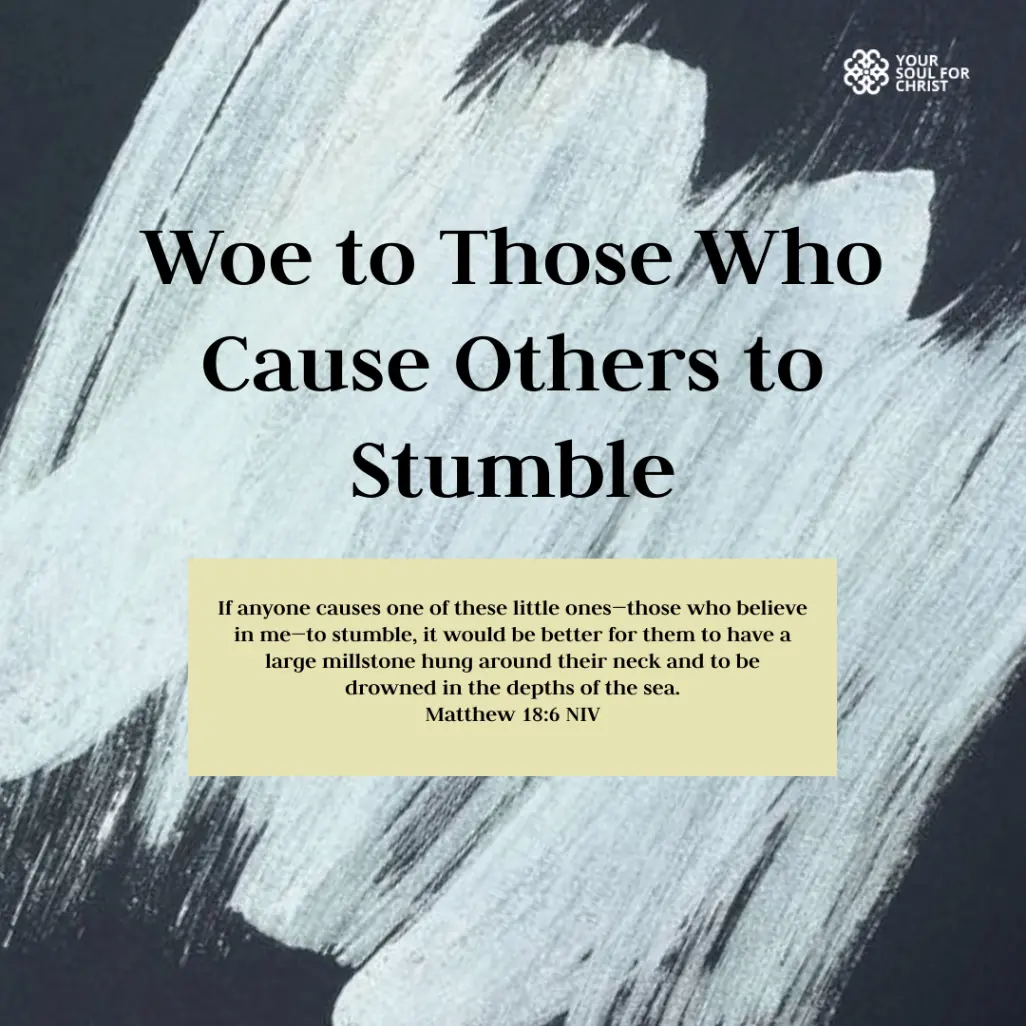If anyone causes one of these little ones—those who believe in me—to stumble, it would be better for them to have a large millstone hung around their neck and to be drowned in the depths of the sea.
Matthew 18:6 NIV
When Jesus spoke these words, He did not intend to soften the truth. He used the harshest possible image to show how dangerous it is to damage the faith of others. To understand this verse deeply, we must consider who the “little ones” are, what it means to “cause them to stumble,” and why Jesus chose such an extreme warning.
The phrase “little ones” goes beyond children, although children are included. In the broader context of Matthew 18, Jesus has just placed a child before His disciples and declared that unless they become like little children, they cannot enter the kingdom of heaven. In that moment, “little ones” refers to all who approach God with humility, simplicity, and trust. These are the weak in the world’s eyes but precious in the eyes of Christ. They are believers whose faith is tender, vulnerable, and easily influenced. Jesus speaks as a Shepherd who defends His flock.
To “cause them to stumble” means to trip them up in their faith. The word carries the idea of trapping someone or putting an obstacle in their way. Jesus shows that sin is never private—it always spills over into the lives of others. If we live carelessly, if we teach falsely, if we act hypocritically, we may wound the faith of someone who looks up to us. For Jesus, such an act carries consequences far worse than physical death. He declares that it would be better to drown with a massive millstone around the neck than to face God’s judgment for destroying another’s faith. Truly, woe to people who cause others to stumble, for they will not escape the justice of God.
This teaching does not stand in isolation. Both Mark 9:42 and Luke 17:2 record the same warning. Paul applies the same principle when he urges the Corinthians not to use their freedom in ways that cause weaker believers to stumble. In Romans 14:13, he commands the church not to put obstacles in anyone’s path. James takes it even further when he warns that teachers will be judged more strictly because misleading others through teaching carries eternal consequences. Across Scripture, the message remains consistent: God takes seriously the way His people influence others.
Biblical history gives us sobering examples of those who ignored this truth. Eli’s sons corrupted worship at Shiloh, abusing their priestly office so severely that people despised the Lord’s offering. Jeroboam, the king of Israel, built golden calves and led the entire nation into idolatry; the Bible repeats again and again that Jeroboam caused Israel to sin. In the New Testament, Ananias and Sapphira lied about their offering, and God struck them dead because their hypocrisy threatened the holiness of the early church. The Pharisees, too, became blind guides who shut the kingdom of heaven in people’s faces, earning Jesus’ harshest rebukes. Woe indeed to all such people who turned others from God’s truth, for they stood under divine judgment.
Yet Scripture also offers us examples of those who protected and strengthened the faith of others. Jesus Himself welcomed children, blessed them, and declared that the kingdom of heaven belongs to such as these. Paul guarded the Corinthians like a father who protects his daughter, fearing that the enemy would corrupt their pure devotion to Christ. Barnabas defended Paul when others doubted him, preserving his ministry and giving the church one of its greatest apostles. These lives illustrate the opposite of stumbling—they show what it means to nurture faith rather than destroy it.
The lesson for us today is clear. Every believer holds influence, whether we realise it or not. Parents shape the faith of their children. Teachers and preachers mould the faith of their students and listeners. Friends and disciplers guide the faith of those who walk beside them. Even our daily words, actions, and attitudes either strengthen or weaken those who watch us. Because of this, Jesus calls us to live with deep responsibility. We must protect the vulnerable, not exploit them; teach truth, not error. Likewise, we must live in integrity, not hypocrisy.
When Jesus said it would be better to drown with a millstone than to mislead a believer, He was not exaggerating. He was showing us the eternal seriousness of influence. Death by drowning ends only the body, but leading others into sin risks the soul and brings eternal consequences. Truly, woe to anyone who causes others to stumble, for the judgment of God rests heavily upon such a life.
In the end, this passage magnifies both the weight of responsibility and the depth of Christ’s love. He treasures the faith of His people so much that He defends it fiercely. He warns us that the way we live has the power to bless or to destroy. Our calling is to protect faith, not corrupt it; to build lives, not tear them down; to strengthen others, not stumble them. Woe to those who lead astray, but blessing to those who nurture the faith of others.
Living It Out
Every believer carries influence, whether through words, actions, or example. Jesus calls us to live with care, protecting the faith of those who trust Him and guarding against anything that could cause them to stumble. This week, ask God to help you strengthen rather than weaken the faith of others—encouraging, guiding, and pointing them closer to Christ.

